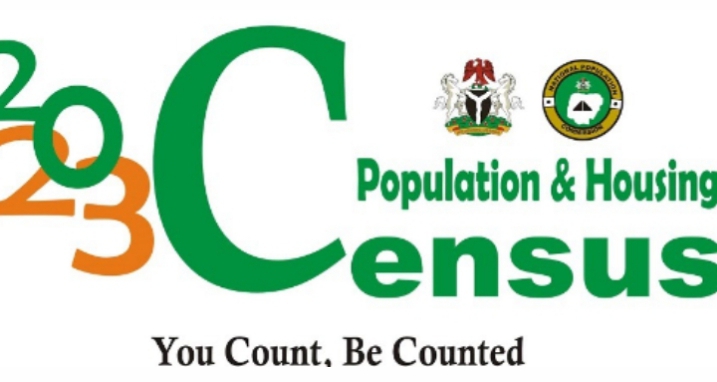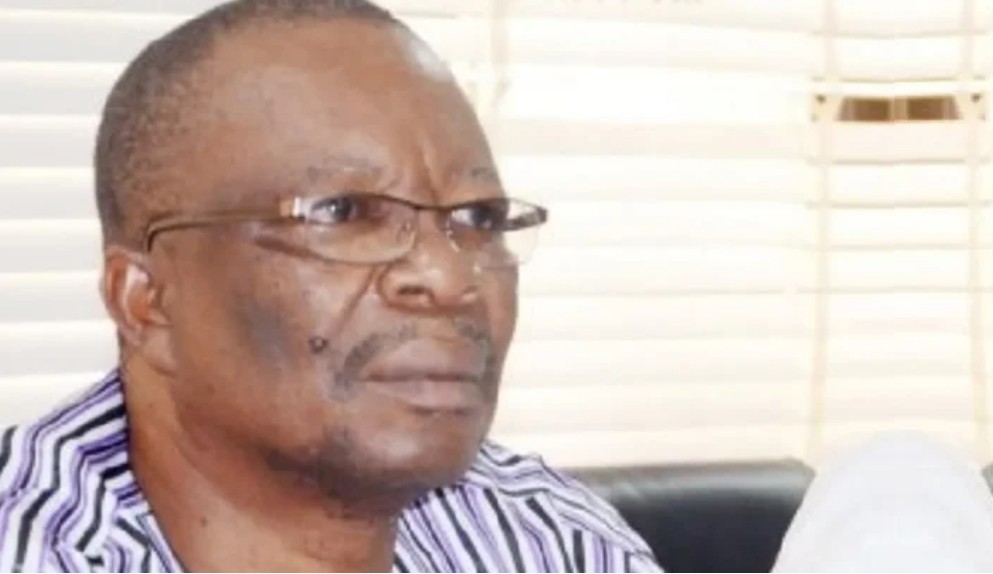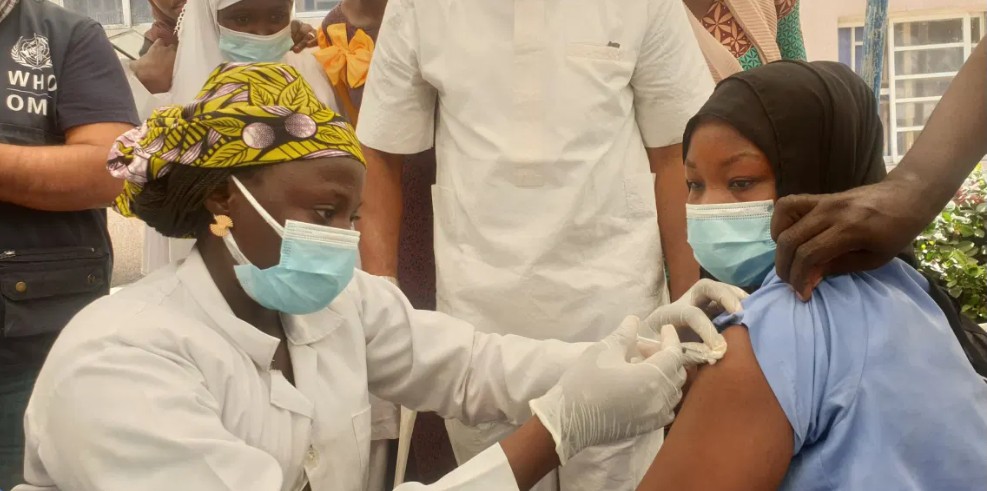Home > News > 2023 Census and digital revolution...
2023 Census and digital revolution
By Gift | 26 Apr, 2023 09:03:40am | 94

Nigeria is embarking on another National Population and Housing Census. Enumeration begins on May 3 and ends on May 7, 2023. It is not new in Nigeria, since 1866 when it was first conducted by the British colonial administrators, around the areas of Lagos Colony. Census activities returned five years later in 1871; and returned 10 years later in 1881. Another census also followed 10 years after in 1891; and yet another took place 10 years after in 1901. In all, no fewer than six censuses were conducted before the amalgamation of the Northern and Southern protectorates of Nigeria in 1914.
However, for about 61 years between 1901 and 1962, no census activities took place in the country. But in May 1962, there was an expanded national population census, which covered the rest of the country, and estimated the population of Nigeria to be about 45.1 million people. There was an attempt by the defunct National Census Board to conduct a national population census between November 25 and December 2, 1973, but the attempt was inconclusive; until 1991, when a fresh census was conducted, which estimated the population of Nigeria at about 88.9 million people.
The last census witnessed in the country was in 2006; it came with some modern innovations, such as the introduction of a satellite Geographic Information System to map out the country; it also introduced the use of satellite imagery of locations, and the use of computers in data processing, and for the first time, housing was enumerated.
It was the beginning of the housing census in the country, hence, the 2006 census was known as “National Population and Housing Census.” It estimated the population of Nigeria at about 140, 431,790 million people.
Census is beyond mere physical numerical counting of the population; it is rather a highly sophisticated research method, in which statistical enumeration is used to study the population of a country. During census, therefore, statisticians observe every variable canvassed in enumeration questions to generate data for planning and development purposes.
The methodology adopted by the National Population Commission (NPC) for the 2023 National Population and Housing Census is a “de facto” census. This means that all citizens resident in Nigeria during the census — infants, children, adults, men, women, pregnant women, including foreign nationals — will be enumerated where they are found on the day of enumeration. It also means that census migration to hometowns, villages and hamlets of origin by citizens is unnecessary.
One significant determinant of a reliable census is the willingness of the citizens to participate in the exercise without bias. Census bias may occur when citizens fail to participate, or when they give biased responses. In a census, citizens are expected to participate freely, give accurate responses to questions being canvassed, and be conscious of the fact that their responses are safe and protected under the law; and that the responses will not be used against them, but will strictly be used to produce statistical data to guide the provision of social amenities and development of other infrastructure.
Census data function to provide an estimated population of a country, and provide answers to such questions as: How many more schools are required; and how many more teachers are needed to be recruited or trained? How many more hospitals and health professionals are needed? How many tons of food is required to be produced to feed the population? How many houses are required to be constructed? How many jobs are needed to be created, to engage the large army of unemployed young people? Among several other developmental questions that define the problems of the country.
For example, available statistics show that while the population of the United Kingdom increased slowly from 52.40 million to 67.33 million people in 61 years, between 1960 and 2021, representing 28.5 percent growth, the population of Nigeria between 1960 and 2021 grew rapidly, from 45.14 million to 213.40 million people, representing 372.8 percent growth within the same 61 years period.
These statistics demonstrate that comparatively, Nigeria has a rapid population growth rate. It also means a higher demand for food production, schools and hospital construction, employment generation, expansive water provision, and massive development of other social and economic infrastructure to meet an ever-growing demand of a huge population, than in the United Kingdom; the provision of these requires complete, reliable and accurate data, and the census is a methodology for generating such data.
The Web 2.0 world, which came with the digital revolution, has provided the NPC with tools to rise above some of the human factors that may have worked against previous censuses in the country. For example, at the 1962 census, reports were that there was an error of omission, when a large segment of the population in parts of the North was discovered not to have been captured. Later enumeration of the areas shows that about 8.5 million people would have been omitted, and their addition to the total census figures brought the population of the North to about 31 million people, making the total population of Nigeria at the time about 56 million people. This was when the population of Ghana was estimated at 6.64 million people.
Thus, the digital tools deployed by the NPC for the prosecution of the 2023 census, apart from helping to eliminate the problem of possible omission, will also eliminate other possible human errors in enumerations, such as duplication of enumeration, and enumeration in wrong places, to ensure the accuracy of the census results.
Two contentious issues that will not be canvassed as variables, at the 2023 National Population and Housing Census, are tribe and religion. These issues were hotly debated at a “data users’ workshop” organised by the NPC in Kaduna ahead of the 2006 census. It came against the background that religious jingoists and politicians who failed to rise above their clannish enclave relied on these divisive factors to view national issues with tinted glasses, with a motive to mislead the people.
The governor of Kaduna State at the time, Ahmed Muhammed Makarfi, was very vehement in his objection to canvassing religion and tribe at the census, on the grounds that they were very touchy and could endanger the acceptability of the census result. The NPC, in its wisdom, avoided those contentious issues. The issues remain contentious, and the commission has said they will not be canvassed in the 2023 National Population and Housing Census.
Although the Lagos State government rejected the results of the 2006 census, the rejection was never upheld by the decision of any census tribunal because it never went on trial. At the 1991 declaration of census results, critics were so loud that the NPC chairman at the time, Alhaji Shehu Musa (late), in his defence of the population figures declared that “I am ready to go to jail if it is found that I tampered with census figures…” In the end, most of the states and local governments that challenged the 1991 census results at the census tribunal lost their cases, and their claims were voided.
What may be required for a successful 2023 National Population and Housing Census is citizens’ participation and their unbiased responses to enumeration questions. This means that participants in the census enumeration must necessarily do away with their old prejudices about what census is not; and avoid misrepresentation about the purpose census figures are not meant to serve; while the digital tools deployed to prosecute the census exercise, should be trusted to eliminate fears and suspicion of duplication of enumerations, or inflation of census figures.
The overall benefit of complete, credible and reliable census figures is that governments at all levels and other data users across all strata could achieve exactitude at their planning tables.
•Abraham writes from Abuja
THE NATION

Leave a Reply
Your email address will not be published. Required fields are marked *
Category
.jpeg) Interviews
Interviews Business & Economy
Business & Economy Culture & Tourism
Culture & Tourism Opinion
Opinion Technology
Technology Health
Health Crime & Security
Crime & Security Sports
Sports  Religion
Religion  News
News Education
Education  Entertainment
Entertainment Politics
Politics